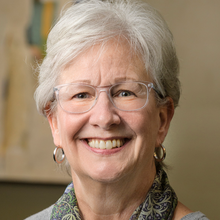
Excerpt from The Extension, Spring 2019
By Joyce Howes
PLASTICS: We can’t keep living with them in ever increasing amounts, but can we learn to live without them? As I write, I look around my kitchen.
Every surface is occupied by items made at least partly of plastic. On the table I see my iPhone in its plastic case, my glasses, mouse and keyboard, the casing of my computer, the wrapper around my Cliff Bar. If I broaden my gaze, I see a plastic dish detergent bottle, a plastic blueberry container, a plastic bin full of kitchen junk and papers.. I’m almost hyper aware of minimizing plastics in my home. I no longer buy zipper storage bags, I buy milk in cardboard cartons, and I use waxed paper instead of plastic wrap, yet there still is too much plastic in the recycle bin every week.
According to the United Nations Environmental Assembly 2018 Annual Report, “Putting the Environment at the Heart of People’s Lives,” nearly 2 billion plastic grocery bags are discarded every year. But that’s just the beginning. Much of what goes into those plastic bags is in plastic containers; most restaurants still use plastic straws; fast food restaurants generate an obscene amount of plastic waste; and on and on. In general, humans are inclined to overconsume, discard, litter, and pollute. The US alone produces about 40 million TONS of plastic waste annually! So, what can a single American household do to make a meaningful difference in global plastic waste? Consider the “Rs”: reduce, reuse, refuse, reclaim, renew, revitalize, refurbish, rethink and redesign. Notice that recycle is not on the list. The more we reduce plastic brought into our homes, the less plastic we’ll toss in the blue bin.
The UN Environmental Report also highlighted numerous advancements in reducing plastic waste: banning plastic bags and drinking straws, charging for usage of bags, taxing manufacturers of plastic bags, and more. The European Union is a leader in these efforts. Sadly, the United States has strongly supported increased waste management over reduced production of plastics. The world’s plastic waste wildly exceeds our capacity to “manage” it, yet US delegates demanded extension of deadlines and reduction of goals in the final report. It’s time for the United States to join dozens of other countries and put environmental recovery before corporate profits.
In 1967, the famous one-word piece of advice offered to Benjamin Braddock (Dustin Hoffman) in The Graduate was, “Plastic.” “There’s a great future in plastics,” he was told. Unfortunately, our unbridled pursuit of that great future has now created one of our greatest environmental challenges. Now, some 50 years later, I have just two words of advice: VOTE GREEN!

